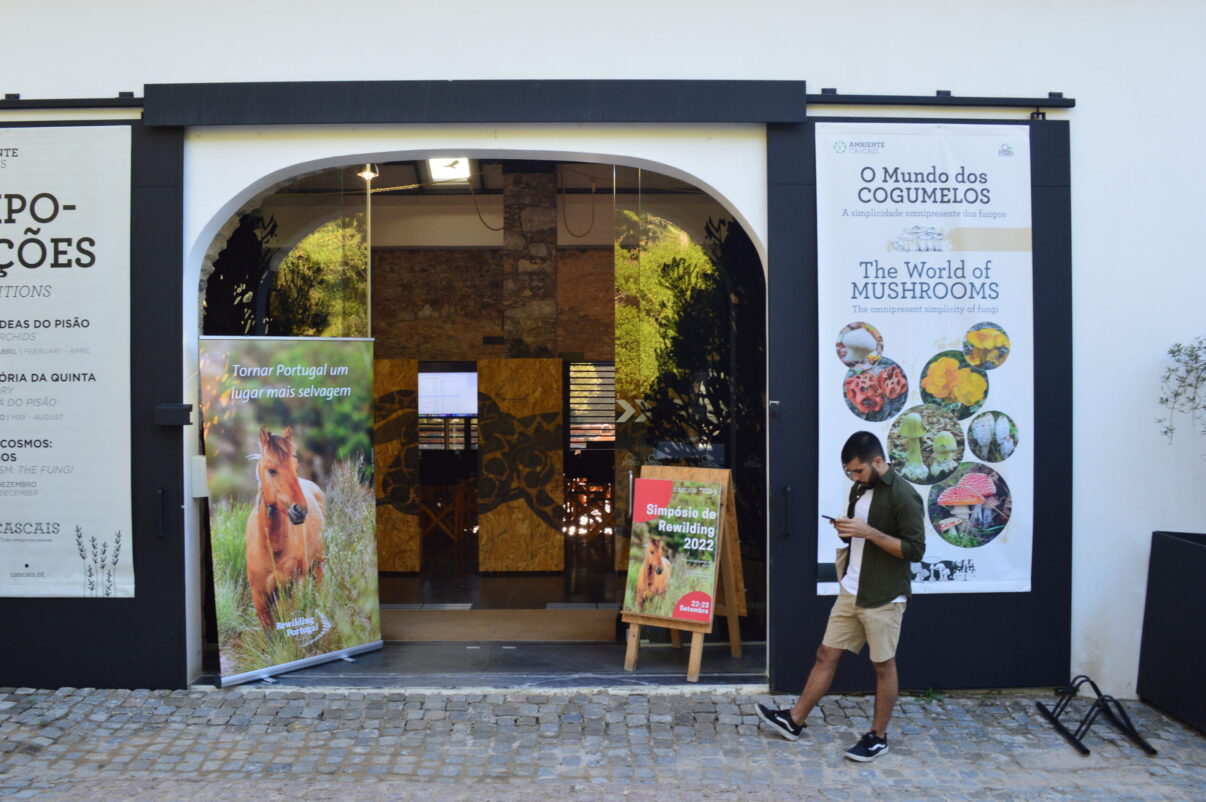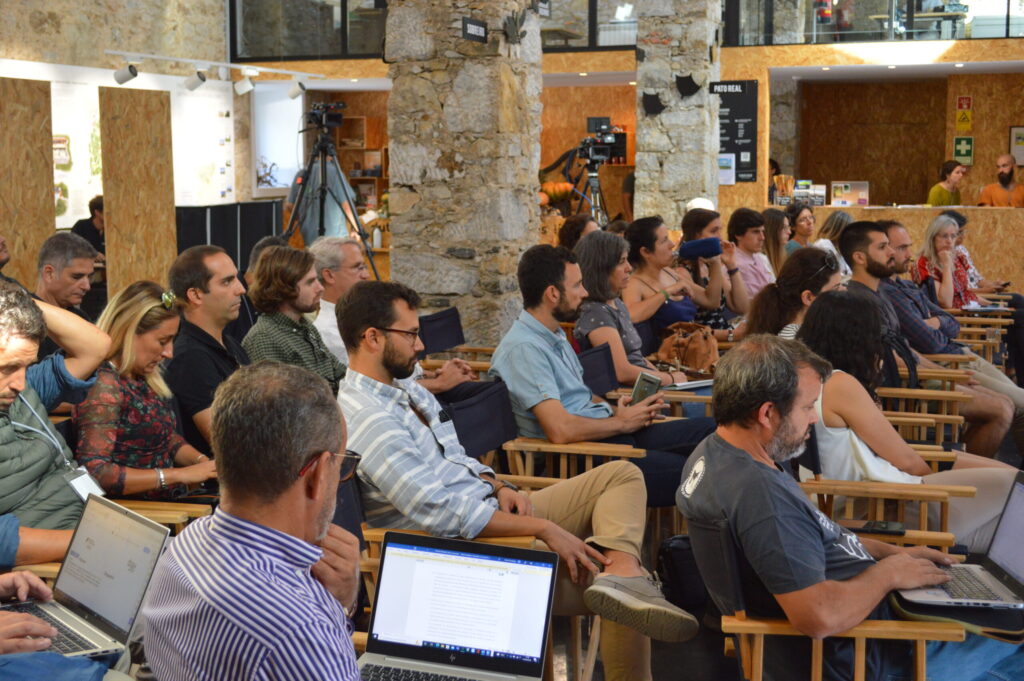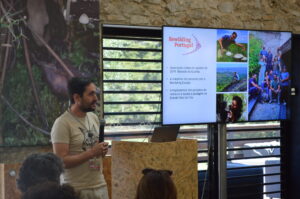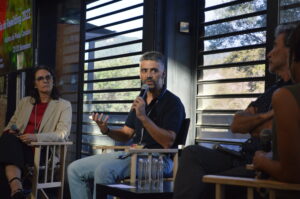The symposium, which helped promote rewilding in both a European and Portuguese context, featured a range of presentations from rewilding thought leaders. It has so far attracted over 2000 online views.

Pioneering event
Portugal’s first ever rewilding symposium took place on September 22 and 23 at the Quinta do Pisão Nature Park (a member of Rewilding Europe’s European Rewilding Network), just outside Lisbon. Organised by Rewilding Portugal and Cascais Ambiente, the event helped to raise awareness of rewilding and the rewilding agenda of Rewilding Portugal and Rewilding Europe. With a range of thought leaders and rewilding experts present, it saw many productive discussions take place around the opportunities and challenges of rewilding in Portugal.
The invitation-only symposium was attended by NGOs, government representatives, university students and other Rewilding Portugal partners and associates. The event was also livestreamed for free, and has now been watched online by more than 2000 people. The first speaker at the event was Raquel Filgueiras, Rewilding Europe’s Head of Rewilding.
“This was a really pioneering, productive and well-facilitated event that helped to reinforce the validity and legitimacy of the European rewilding agenda,” says Filgueiras. “It served as a great platform for talking about rewilding in a Portuguese context, as well as what distinguishes rewilding from traditional nature conservation.”

Diverse discussion
The symposium programme featured presentations by a range of rewilding and conservation experts, including Humberto Rosa (the European Commission’s Director for Biodiversity at the Directorate-General for Environment), Pedro Prata (Rewilding Portugal team leader), Jordi Palau (Fundación Española de Renaturalización and a member of the board of Rewilding Spain), Henrique Miguel Pereira (iDiv and CIBIO/BIOPOLIS), Carlos Albuquerque, Director of the Nature Conservation and Biodiversity Department at the ICNF (Institute for Nature Conservation and Forests), and Ana Salomé (Symington Family Estates).
The subjects of these presentations included the role of ecological restoration, the potential of rewilding to meeting ecological restoration goals and nature conservation in Portugal, natural grazing and its role in mitigating the risk of catastrophic wildfire, the management of classified and protected areas in Portugal and landscape-scale ecological restoration within them, and nature-based economies and the role of private enterprise in nature conservation.
“This symposium marked a turning point in terms of how nature conservation is perceived in Portugal, and of what it can be if we are creative and ambitious,” says Rewilding Portugal team leader Pedro Prata. “It was important to have a meeting where so many organisations and entities with responsibilities in the conservation space were present, to debate and co-define the future of rewilding in this country.”
Attendees at the symposium were also offered the chance to enjoy two visits to Quinta do Pisão to witness first-hand the rewilding efforts being carried out there – one at night to observe bats and birds, the other during the day to know the space better.


Future focus
Today, the Rewilding Portugal team are working hard to rewild the Greater Côa Valley, with the aim of creating a healthy, fully functioning and resilient natural landscape, complete with a diverse array of wildlife species and thriving nature-based economy. By demonstrating rewilding’s huge potential, their efforts will hopefully motivate other Portuguese rewilding initiatives to follow suit.
“Awareness of rewilding is definitely increasing in Portugal,” says Raquel Filgueiras. “One of the questions that came out of the symposium was: ‘why isn’t rewilding in Portugal carried out more widely?’ The Rewilding Portugal are doing a great job, innovating, inspiring others, and partnering with like-minded organisations. As with all of European rewilding, it’s really time to scale up.”
Want to know more?
- Day 1 of the symposium (Portuguese only)
- Day 2 of the symposium (Portuguese only)
